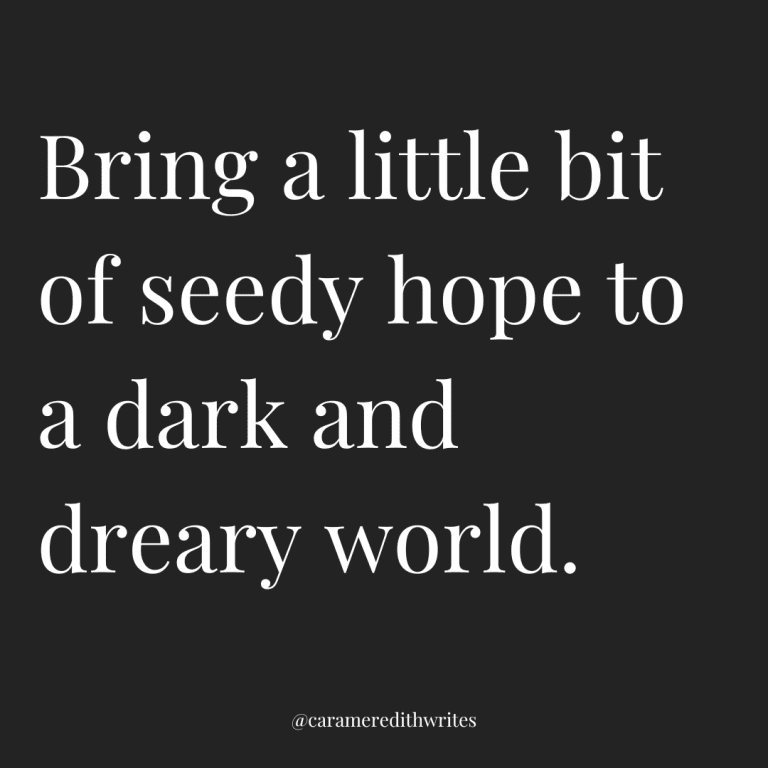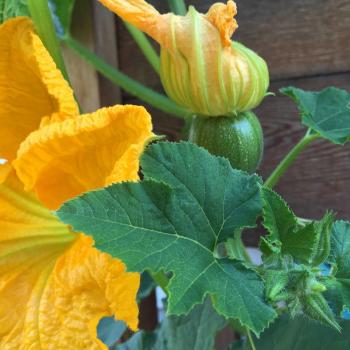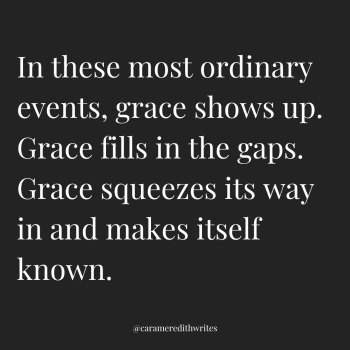As often happens in the summer months, we had family in town this last week. My sister and her two kids flew down from Washington state for cousin bonding and auntie-together time and general family shenanigans.
But just before they left for the airport, my six-year-old niece told us how it was going to be.
“Listen up! We’re going to have a parade!” Sammy shouted. “We’re going to play marching band! Here, grab and instrument. Let’s go!” If you’ve not recently been around a six-year-old child, when their last California wish involves a family parade up and down the sidewalk, you do as you’re told. You pick out an instrument and you start to march.

My older son grabbed the bongos, while his younger brother nabbed the metal lid to the salt shaker and a spoon to tap rhythm. My niece decided whistling and snapping would be the best instrument for her to use, while I decided to sing and clap.
The parade lasted all of four minutes, past Marvin and Jessica’s house, and Margarita’s house too, down to the shade of the maple tree in front of neighbor Jason’s house too.
It wasn’t all that rhythmic, and “Oh, When the Saints Go Marching In” probably didn’t sound all-that melodious to the neighbors who benefitted from the spontaneous parade, but we listened to my niece and leaned in to her wish; we relished in the memories made in one tiny sliver of time.
Is today’s gospel reading not an invitation to do the same?
In the parable of the sower, which is found in Matthew, Mark, and Luke, as well as in the gospel of Thomas, Jesus tells a story of some seeds: seeds that fall on the ground and get eaten up by the birds. Seeds that fall on rocky soil, but die because they have no depth, and seeds that fall among thorns and get choked up as a result. Then, of course, there’s the seeds that fall on good soil, that bring “forth grain, some a hundredfold, some sixty, some thirty.”
And when Jesus finished telling this story, while sitting in a boat while the crowd stood on the shore, he ends the tale with these five words: Let anyone with ears listen.
Listen, as I talk to you about the soil. Listen, to what I’m plainly saying to you. Listen, because what I’m saying might be exactly what you need to hear.
This is not, of course, a sermon about purchasing the best soil for growing vegetables in the backyard, although if you have strong preferences about the matter, I’m always glad to hear.
But a parable is a simple story used to illustrate a moral of spiritual lesson. As one theologian writes, parables are meant to reveal and conceal.
What might Jesus then be revealing to us today? Is there something he’s concealing or keeping from us?
As Jesus soon reveals to the crowd, each of the seeds represents a different hearer: the seed that falls on rocky soil is the person who hears and receives the words with joy, GREAT JOY – but because there is no depth, as soon as trouble comes, that person goes with it. Likewise, when seed falls among thorns, “this is the one who hears the word,” Jesus says, “but the cares of the world and the lure of wealth choke the word, and it yields nothing.”
But when the seed falls on good soil, the listener hears the word and understands it, bearing fruit, more and more fruit.
When it comes to us, to those of us gathered in this place and on the other side of the screen, what does it mean to listen and bear fruit? What does it mean to be present to what God has for us right here, right now, in this moment?
I think of the words of late poet Mary Oliver, who gave the following instructions for living a life: Pay attention. Be astonished. Tell about it.
Pay attention: listen up. Join in the parade. Breathe in that song, that sermon, that passage of scripture. Notice who pops into your mind at the most random of times, the one you keep thinking about. Take a walk around your garden or your neighborhood, and notice beauty present in the pollinators and the sunflowers, the still-green tomato bulbs and the bush of peppers, growing by the day. Talk your neighbors; get to know the person who sits two pews behind you, every week. Notice injustice in the world around you; sniff out justice present around you as well.
Repeat, repeat, repeat.
Be astonished: In each of these walks and conversations, in the listening and in the doing, I believe we are invited to sense God’s presence – to believe that the Spirit might be behind that hymn, that God might be the one prompting you when that random person “just so happens” to come to mind. Is this the Great Mystery of the spiritual life? Perhaps. Is the one who often speaks in parables in an effort to reveal and conceal, the one speaking to you in these moments too? Perhaps.

Then, tell about it: Make some noise. Beat that drum. Send that text, make that phone call, write that email. Bake those muffins and drop them off on the doorstep, just because; join in the fight against the wrongs of this world, because you know and you’ve seen and you believe in a Hope that can turn the world right-side up again.
Bring a little bit of seedy hope to a dark and dreary world.
“We are a people who even now glimpse germinating seeds yielding bouquets of humanity: a surprising, sudden, fragile yield of the kingdom’s mysterious grace and justice,” theologian David Schnasa Johnson says. I don’t know about you, but this feels pretty true to me.
There’s a song I used to sing at camp growing up, a song that actually stems from another one of Jesus’ parables:
This little light of mine
I’m gonna let it shine,
This little light of mine,
I’m gonna let it shine.
This little light of mine,
I’m gonna let it shine,
Let it shine, let it shine, let it shine.
I think about the words of this song and I wonder if this is part of what Jesus meant when he encouraged the crowd to let the seeds fall on good soil – to let all that beauty and mystery and hope soak into their bones as to yield bouquets of humanity, “a surprising, sudden, fragile yield of the kingdom’s mysterious grace and justice.”
We don’t always get it, but when we do, we can’t help but lean in.
We can’t help but pay attention, be astonished, and tell about it.
We can’t help but let it shine.
Amen.
—
This is a sermon preached on July 16, 2023 at St. Paul’s Episcopal Church in Oakland, California. If you liked this post, you might also like “How to Carry Your Cross.” To a little bit of seedy hope!

















